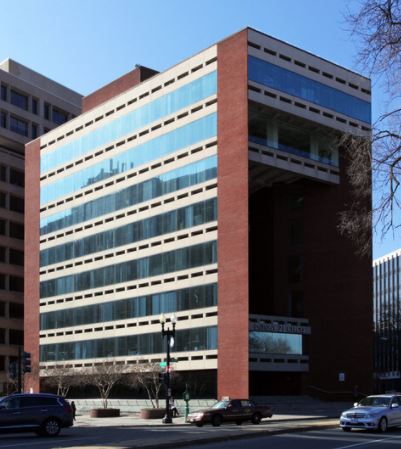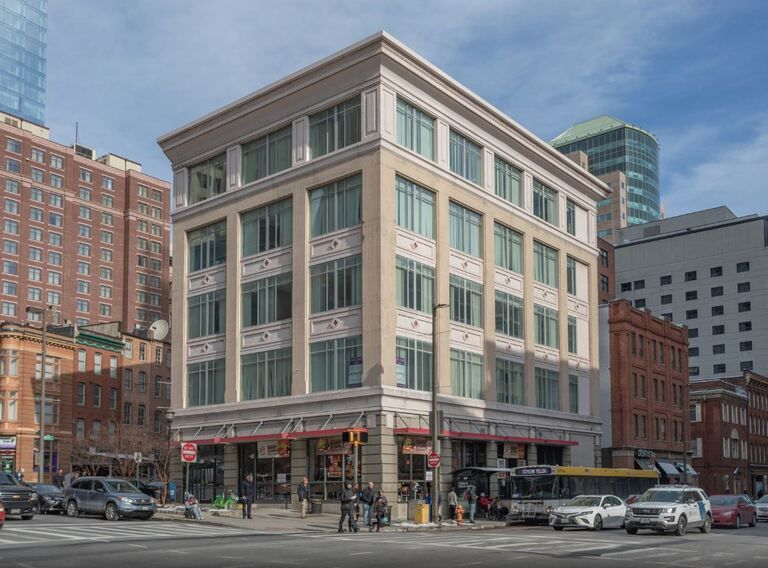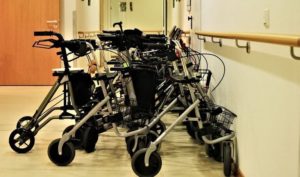Senior Justice Law Firm – Washington DC Office
21 Dupont Cir NW #700
Washington, DC 20036
(202) 899-3111
A Law Firm Focused on Nursing Home Abuse Cases, Serving Washington D.C.
Injury or wrongful death inside a D.C. nursing home? Let our Washington DC nursing home abuse attorney assist your family in recovering compensation.
At Senior Justice Law Firm, we understand that Washington DC nursing home abuse lawsuits are about more than just money. This is about justice. This is about righting a wrong.
Let our skilled and compassionate Washington DC nursing home abuse attorney guide you on your journey to justice. Nursing home abuse litigation is the focus of our firm. Call or chat with us now to see why Senior Justice Law Firm is different.
Free Washington DC Nursing Home Abuse Attorney Case Consultation:
(202) 899-3111

Take a stand against elder abuse. File a Washington DC nursing home neglect lawsuit.
Offices



Our nursing home abuse attorneys accept cases across DC, Maryland, and Virginia. Unable to visit one of our offices? We can do a virtual appointment, or come to you. Call us to set up a free telephone consultation at 888-375-9998. Appointments only.
The Telltale Signs of Washington DC Nursing Home Abuse
Nursing home abuse injuries take many forms. If you suspect your loved one suffered a serious injury or wrongful death due to nursing home negligence, contact our Washington DC nursing home attorney immediately.
However, many families are unsure if their loved one’s injuries constitute nursing home neglect. While not an exhaustive list, below are some of the common injuries which result in a nursing home negligence lawsuit:
- Bed sores, pressure ulcers and pressure injury wounds
- Falls resulting in broken hips, femur fractures and brain bleeds
- Medication errors
- Elopement or wandering off the facility premises
- Sexual abuse, physical assaults and rape
- Unexplained injuries and broken bones
Any of the above injuries are suggestive of abuse, neglect or negligence. Call our Washington DC nursing home abuse attorney if your family member developed any of these ailments inside a long term care facility in the DC metro area.
Contact Our Washington DC Nursing Home Abuse Law Firm
Senior Justice Law Firm
21 Dupont Cir NW
#700
Washington, DC 20036
(202) 899-3111
Washington, D.C. Nursing Home Abuse & Neglect

Washington, D.C. has a population of approximately 705,749 and is the 24th most populous place in the United States. The Washington DC metropolitan area is one of the country’s most affluent metro areas. 12.1% of Washington, D.C.’s population is 64 years of age or older.
Further, many DC metro area seniors reside in Washington DC skilled nursing homes. This means residents of nearby Northern Virginia and Maryland often get admitted into DC long term care facilities.
While DC enjoys some of the nation’s highest-rated hospitals, unfortunately, some Washington DC nursing homes consistently provide substandard care. As a result, preventable injury, bedsores, pressure ulcers, falls, broken bones, and wrongful death occur frequently in patients.
The Washington, D.C. Health Regulation & Licensing Administration lists nineteen (19) nursing homes within the city, with the number of beds each facility offers ranging from 16 to 360. Two of the facilities located in Washington, D.C. have been cited by the Center for Medicare and Medicaid Services for nursing home abuse.
Resident and consumer reviews regarding several of the remaining seventeen (17) facilities indicate that those facilities, while not cited for abuse by the Center for Medicare and Medicaid Services, do not provide an adequate level of care and that their residents may be at risk of nursing home neglect and abuse.
Washington Center for Aging Services
A large, 259-bed facility, Washington Center for Aging Services has been cited by the Center for Medicare and Medicaid Services for Washington D.C. nursing home abuse. Although the agency has given the facility a five-star rating for Staffing and Quality Measures, it received a one-star rating for its health inspections and an overall rating of two out of five stars.
In the most recent health inspection for this facility, dated July 30, 2019, Washington Center for Aging Services was cited for its failure to thoroughly investigate an incident of abuse and/or neglect. One incident involved a resident that had allegedly become combative when a male staff member attempted to render care; the resident hit her face on a bedrail, including an orbital fracture. The facility stated that an investigation was conducted but there was no written conclusion of the investigation.
Moreover, that resident was not provided an interpreter during care and did not respect the resident’s wishes that no male staff provides care for her. The injury suffered by the resident could have been avoided had the facility provided adequate care.
Transitions Healthcare Capitol City
Transitions Healthcare Capitol City is the second facility in Washington, D.C. that has been cited by the Center for Medicare and Medicaid Services for nursing home neglect. According to the most recent health inspection survey conducted on December 14, 2018, there were several incidents of resident-on-resident assaults and physical altercations.
There were reported incidents of residents slapping or punching another in the chest, getting into highly charged verbal altercations, and one resident grabbing and hitting his roommate. More concerning, the facility stated that while it documented the fights, there was no documentary evidence that a thorough investigation was conducted.
Finally, based on incident reports, there were instances where CNAs and staff refused to turn a resident when requested which prevents the development of bedsores.
In one case, a resident fell while he was being assisted to the bathroom. As a result, the resident was told that he could no longer go to the bathroom because he had fallen. The facility investigated the latter incident as a fall, not as a neglect case.
Deanwood Rehabilitation and Wellness Center
One cannot rely solely on the Center for Medicare and Medicaid Services ratings to evaluate nursing homes. For example, Deanwood Rehabilitation and Wellness Center is highly rated by the agency and received an overall rating of four out of five stars.
Its health inspection, staffing, and quality measures ratings have also received four stars each. Yet, the most recent health inspection survey for the facility shows a long list of citations and regulations violations. Although some of the citations are for administrative issues, the survey also observed a resident calling to a particular staff member for help.
The staff member was at a wall computer and she ignored the resident who was in a wheelchair. When the surveyor asked the resident what she needed help with, she stated that her diaper was too tight and was causing her pain and discomfort. The staff member stated that she had heard the resident calling for help but did not respond because she had to enter her charts into the system by a certain time.
Furthermore, reviews of this facility by residents and loved ones of residents claim that the facility often smelled like urine, residents smelled like they had not been changed or were found lying in their own waste, and that residents did not receive the correct medication.
Conclusion: You Must be Vigilant in Monitoring for Washington DC Nursing Home Neglect
Despite the ratings provided by the Center for Medicare and Medicaid Services, a review of the health inspection citations issued against certain Washington, D.C. nursing homes show that facilities in this area are providing negligent care to some of its residents.
Residents and their loved ones cannot always rely on state and federal agencies to hold the facilities accountable for specific acts of neglect; thus, it is imperative that residents of Washington, D.C. nursing homes and their loved ones remain diligent and recognize the signs of nursing home abuse and/or neglect.
When neglect and/or abuse is not immediately addressed, it can and has led to serious infections, injuries, and, in some cases, death.
Understanding Your Legal Rights After a Washington DC Nursing Home Neglect Injury or Death: FAQ’s
Who is responsible for licensing nursing homes in D.C.?
The District of Columbia Department of Health is responsible for the licensure and certification of health care facilities in the District, including nursing facilities. They make sure that D.C. nursing homes are complying with both federal and state health and safety standards.
The District’s skilled nursing facilities are required to comply with these regulations. The federal regulations governing nursing homes are located in Part 483 – Requirements for States and Long Term Care Facilities in the Code of Federal Regulations.
In addition to complying with federal regulations governing long term care facilities, D.C. nursing homes also have to abide by municipal regulations. These regulations are contained in Title 22B of the District of Columbia Municipal Regulations.
How does the DC Department of Health determine that nursing homes are complying with federal and state laws?
The Health Care Facilities Division of the D.C. Department of Health (HCFD) conducts surveys to ensure that nursing facilities are complying with laws related to the health, safety, and welfare of their residents. HCFD also responds to both facility-reported and consumer-reported complaints about a nursing home.
During these surveys, HCFD determines whether a particular nursing facility is abiding by state and federal standards. If HCFD determines that a state or federal standard isn’t being met, they may issue a deficiency against the nursing home. These deficiencies can affect both federal reimbursement under Medicare and Medicaid as well as state licensure.
The survey results are publicly available, and our Washington DC nursing home abuse lawyers routinely use prior survey deficiencies to evidence a pattern of neglect at a facility.
Are nursing home survey reports available to me?
Yes, Survey Reports are public documents, which can be viewed by anyone. It is always recommended to review nursing home surveys when deciding which nursing home is the best placement for yourself or a loved one. If you need help understanding prior citations at a DC facility, our Washington nursing home negligence lawyers can help.
How do I file a complaint against a D.C. nursing home?
If you have a concern about the care you or a loved one received in a D.C. nursing home, you can file a complaint with the Department of Health. Complaints against a D.C. Health Facility can be completed by mailing in a paper form or by submitting the complaint online. The complaint form will ask you to describe your complaint about the nursing home, including any events leading up to the incident or issue.
Our law firm regularly assists potential clients in reporting nursing home abuse, neglect or injury to the appropriate agency. Contact us now at (202) 899-3111
What if I still have questions about the complaint process?
If you have questions about filling out the complaint form or investigation process, you can speak with someone at DOH. Their contact information is listed below:
Contact Phone: (202) 724-8800; (877) 672-2174
Contact Fax: (202) 727-8471
What kind of a case can I bring against a D.C. nursing home?
Lawsuits alleging negligence against healthcare providers, including nursing homes, are medical malpractice cases in the District of Columbia. There are various claims that you may have against a nursing home stemming from elder abuse, neglect or personal injury.
Our Washington DC nursing home neglect law firm routinely brings claims against nursing homes for bed sores, pressure injuries, broken bones, physical assault and weight loss. The damages available to a claimant or their family include pain, suffering, medical bills and future impairment due to a preventable nursing home injury.
Is there a pre-suit notice requirement in D.C.?
In order to file a lawsuit against a healthcare provider in the District of Columbia, including any nursing facility or long-term care facility, you must notify the healthcare provider of your intention to file suit not less than 90 days prior to filing the action in court.
Bringing a DC nursing home abuse case is a legally complex endeavor. Make sure you hire a lawyer that focuses on these kinds of claims. Contacting our D.C. nursing home attorney as soon as possible will help ensure that that these deadlines are met.
How long do I have to bring a case against the nursing home?
The period of time that the law gives you to bring a case is called the statute of limitations. Depending on the case and circumstances, there may be an exception to the statute of limitations which would extend the time you have to bring a case. Since every case and facts are different, it’s important to contact a D.C. nursing home abuse attorney as soon as possible.
In D.C. you have 3 years to bring a personal injury claim stemming from medical malpractice. D.C. Code § 12-301, but only 2 years to bring a wrongful death claim. D.C. Code § 16-2702.
However, it is never a good idea to delay in bringing your claim. Delay can result in the loss of your legal rights, so if you suspect a loved one was wrongfully injured in a nursing home, call our DC nursing home abuse firm today.
If my loved one died as a result of Washington DC nursing home negligence does it mean I lose the right to bring a claim?
Just because the person injured in a nursing home passes away, this doesn’t mean that they lose their right to bring a lawsuit in the District of Columbia. Depending on the circumstances of the case, two causes of action may arise: 1) a survival claim; and 2) a wrongful death claim.
What is the difference between a survival claim and wrongful death claim in DC?
If someone dies before having the chance to file a formal nursing home lawsuit, it doesn’t mean that they lose their right to bring a lawsuit. Their cause of action “survives” and someone else, called their personal representatives, brings the lawsuit on their behalf. A survival action compensates the deceased person’s estate for the pain and suffering they went through due to their injury.
A wrongful death claim on the other hand, aims to compensate certain relatives of the deceased person, called beneficiaries for expenses including the cost of a funeral or burial, medical bills, loss of financial support and other services that the deceased would likely have provided to their family. A personal representative is the proper party to bring a wrongful death action. A wrongful death action must be brought within 2 years after the death of the person who was injured. D.C. Code § 16-2702.
Washington DC Nursing Home Abuse Lawsuit

DC nursing home abuse festers when left unreported.
If your family member suffered a serious injury inside a Washington DC nursing home or assisted living facility, take action today.
Speak with our experienced and compassionate Washington DC nursing home abuse attorney by calling us or use the live chatbox below. We are here to help you through this difficult chapter. Let our dedicated DC nursing home abuse law firm help you achieve justice for the pain and suffering your loved one experienced.
Free Case Consultation with a DC Nursing Home Neglect Attorney
Call or chat with us today. The consultation is free and we only get paid if you make a financial recovery on your DC nursing home negligence case.
(202) 899-3111

Washington DC Nursing Home Abuse Law Firm, Senior Justice Law Firm
Updated 10/8/2020

